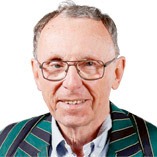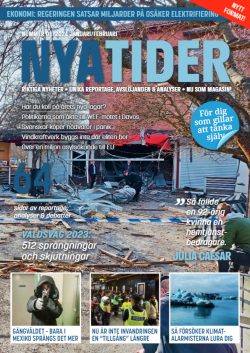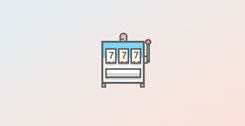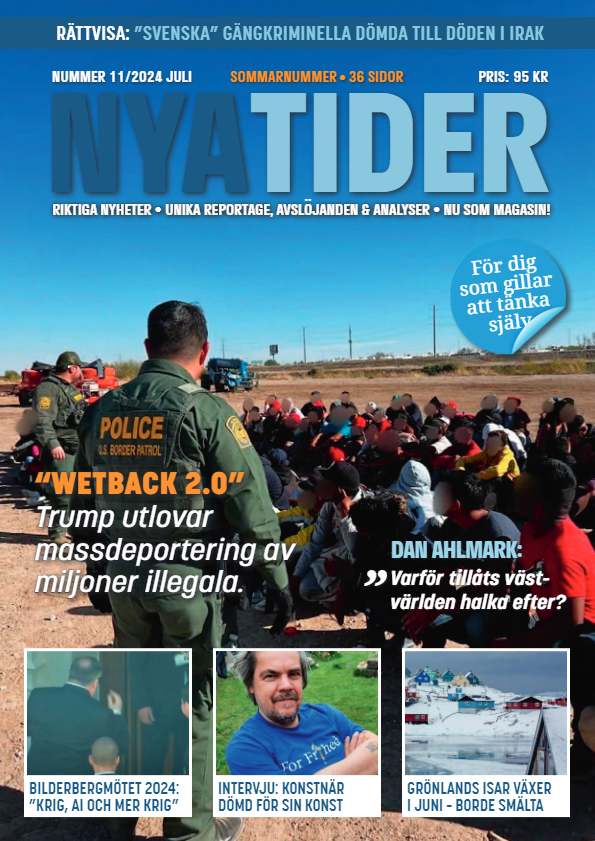Q: What are the reasons for the crisis occurring now in the Republika Srpska and how do you see its development in the future?
– The Republika Srpska is an entity that had a lot of its jurisdictions taken away from 1996 to 2006, by the EU’s High Representative for Bosnia and Herzegovina [the position was held by Carl Bildt 1995-1997]. Even as it is, the Republika Srpska has a lot of independence and a high degree of autonomy. This is reflected in the fact that Republika Srpska has its own government, its National Assembly, and inside the federal government it has a very important Ministry of the Interior and Ministry of Finance. The elements that are missing in order for Republika Srpska to be absolutely independent are: a Central Bank, border police, as well as an administration for Indirect Taxation.
However, that is not stopping us from being the most stable part of Bosnia and Herzegovina and we perceive Bosnia and Herzegovina as a framework, and we have nothing against that framework. Nevertheless, there have recently appeared “good Serbs”, Serbs serving as puppets on the federal level, due to which we have a slow corrosion of the Republika Srpska from the inside. Namely, the people from the so-called “Alliance for Change”, due to hatred towards the government of Republika Srpska and the orders from their “mentors”, mainly Western-oriented, endeavour to, at any cost, bring down the government of Republika Srpska and with it to bring down the Republic itself.
They don’t know how far-reaching the consequences would be if the legally-chosen government were brought down. Thus, the last protest they organized shows that they too, of course, have supporters and a party structure they brought to the protest. And in a multiparty system it is normal to expect that. But, at our rally there were several times more people and that means that they succeeded in showing the public, at a low rate, or should we say succeeded in diverting attention from the important topics and in that way take up media space with the media that is not favorable to us. And with all that international pressure, besides the pressure and conflicts that the so-called “Alliance for Change” wants to start, Republika Srpska, for two years now, has been functioning without the IMF. It is effectively paying all the interest on debt to the Paris and London club, to the IMF and World Bank, and does not bring into question the liquidity of the budget.
Of course, we do not have sufficient investments, but we are not complaining. At the moment, Republika Srpska is building a 60-km-long highway Banja Luka – Prnjavor – Doboj, and it is supposed to be extended to Bjeljina and then to the border with Serbia. Republika Srpska is financing, from its own funds, the building of the hydropower plant “Dabar” in the Trebisnjica River Basin. Republika Srpska is a good place for investments and that can be observed by the EFT group (Energy and financing team), that is owned by the Serb Vuk Hamović, who constructed the first hydropower plant in this region in Stanarevo, near Doboj. This is a good area for investment, our firm “RS Silikon” in Bjelajac near Mrkonjić city that manufactures silicon for microelectronics and in general for high-tech devices. So, we can’t say that there are no investments, but it would be good if we renewed that investment cycle.
We primarily have a future in agriculture as we’ve got a lot of unused land. We have a future in tourism because of the significant tourist facilities in terms of mountains, religious tourism, and in Herzegovina the proximity of the sea and the coast, as well as the proximity of Dubrovnik. And the third branch in importance is the energy sector, where we have an opportunity to build hydropower plants on the Drina River in the lower, middle and upper courses of the river, and two wind farms with a capacity of around 100MW, to build the hydropower plant “Dubrovnik phase 2” on the Trebisnjica river, plus the possibility of building two other hydropower plants, one in Ugljevik and a second block in Gačko. Those are our three main departments: agriculture, tourism and the energy sector. The forests can also be used for wood-processing, although this industry has not been sufficiently developed in Republika Srpska. That is why the raw goods are being exported and mainly to Italy.
Republika Srpska needs support, not any help or financial aid, just support, and we would benefit a lot from being given a hand by Russia, mainly because every Western power views us as a “Russian element” in the Balkans. We are certainly aware of Russia’s friendly position towards us, and we would be very glad if they were present here with their investments. What Russia owns here in Republika Srpska and in Serbia are assets in the oil industry and the refining of oil and its products. We hope that Russia will invest in other sectors and develop its investment bank here through which it could invest in the economy of Republika Srpska. That would be genuine help and we hope that it would be accomplished in the near future.

Q: How do you see the development of the present events in a geopolitical context?
– What is obvious is that Turkey protects Bosnian interests and Croatia strongly protects Croat interests, whereas Russia and Serbia are persistently prevented from the protection of Serbian interests. We have no problem with living with each other and coexisting, and that is normal in the 21st century, but we have a problem with someone depriving us of our rights and our acquired freedom that has been denied us so often, through many wars here. It is needless to humiliate the Serbian element in Bosnia and Herzegovina, but, big powers like Turkey or other Western powers, believe that this should be their aerie and not a joint aerie, and encounter problems there. Which problems?
One problem is that terrorism emerges and has a foothold here in Bosnia and Herzegovina, the land surrounding Sarajevo is being sold to Arabs and the Arab communities now surround Sarajevo. Turkish business is becoming more and more present here as well as Turkish investments and Turkish donations, even in Republika Srpska provided that the Bosnians are employed. In that kind of a “match”, so to say, we are powerless, and we will lose that “economy match” if there is no significant support from Serbia and Russia. It is high time that Europe should, together with Russia, realize that this foothold of terrorism that is developing here needs to be stopped.
The terrorism that is present in France and Spain and periodically appears in America and Russia, should be stopped in the initial stages. If that is not done we will be a buffer, that is, we will be the first to be hit in Bosnia and Herzegovina, but Europe and Russia need to know that the foothold will spread here and will be a threat to the whole of Europe. Today, we all know that one trained Wahhabi or a member of ISIL strapped with 2kg of dynamite, can go anywhere; we also know what he can achieve and what kind of chaos he can create.
Right now, Republika Srpska has a well-equipped and capable Ministry of the Interior. Republika Srpska is ready to answer any attacks as we showed in Zvornik, Sarajevo and anywhere that they occur, and Republika Srpska will ensure stability and a normal life, that is our Ministry of the Interior and the government of Republika Srpska.
Life has always been hard here and it is not realistic to expect that the Balkans will become stable in a year or two. This region has always been a so-called “powder keg”.
Unfortunately, it is always some Western element that is entwined in all of this, it was so in the First World War and the Second and then in this Bosnian war. They are provoking further destabilization in this region so that they can rule it. The “alienate then rule” motto is working great for them here, because the top management of those three parties is misled and bought, and is being led instead of leading the process itself, and with them the West has no problem to “divide and conquer”. And it is going so well that part of the top management does not even want to try to find a common ground with the government of Republika Srpska. That is the biggest problem, they do not want to sit down at a table and talk properly, but they do it under the table and behind our backs.
Our president Milorad Dodik is absolutely ready for any kind of talks, without any farce or being a poltroon that they accuse him of being. He is a man that wants to have a conversation. As you can see, he has conversations even with Russia and their president Vladimir Putin, as well as Serbia. He has open and stable conversations and a coalition in Republika Srpska, but there is a faction that does not want any communication but simply wants to overturn things because they are blackmailed people and people with a bad rating.
Those are not the people that can lead Republika Srpska; take for example the last 20 years in Republika Srpska and you will notice that all the governments fought for independence, autonomy and freedom in Republika Srpska, and all the protests and big rallies that took place had as a goal to promote stabilization of circumstances and to show that there is significant pressure from the international community, even the rally in 1994, August of 1994, that was led by Mr. Radovan Karadzic. All of that is accessible on YouTube and you can see that the speeches given in 1994 are almost exactly the same as the ones from 2016 given by the people in office, contrary to what the people not in power are saying and whom they are working for, and they don’t realize how far-reaching the consequences can be.
Q: Regarding these circumstances, how do you see the future of Republika Srpska? Besides, will the referendum on the authority of the National Court be held as it was announced before? There even were statements concerning the possibility of proclaiming the independence of Republika Srpska…
– There is no constant and lasting peace when we have judges and prosecutors sitting in the court of Bosnia and Herzegovina. Why does the court of Bosnia and Herzegovina exist? It consists of nine judges: two from the Serbian, two from the Croatian and two from the Bosnian side, and the other three are foreign judges. So, we are powerless in appointing the judges or influencing the court and that affects the security processes in Republika Srpska, when the Ministry of Interior files some cases it cannot complete them, because the courts and the prosecutor’s office do not react, so to say.
That is why our goal is – to ensure a greater degree of security and stability for Republika Srpska – to amend the law on the court and prosecutor’s office that is implemented in the Structural Dialogue, so that the constitutional court of Bosnia and Herzegovina has jurisdiction over war crimes and other international crimes, and that the Court of the Federation and the Court of Republika Srpska deal with some local crimes, referring to Bosnia and Herzegovina. So, Republika Srpska, as we said in the beginning, has a lot of the elements of an independent country. If that is possible or not in the future is an issue that depends on which direction the developments are going to take in the region.
If we don’t get help, we alone are not strong enough, and we are not prepared to risk an adventure. Republika Srpska had over 25 000 casualties in this war and we are not prepared to risk that which has been gained by bloodshed, but other powers may decide to, at some point, move the borders in whichever way, and we will not just silently accept that. Of course, when that happens we will make an appropriate move or, if it is called for, put up an appropriate defense mechanism so that things could proceed in the normal manner.
“If we cannot cope together, then we can cope separately” should be the motto. We can coexist, and the problem is surely not us. No war or any bloody crime was ever started by Serbs, but injustice was done to us. I see here, very importantly, that there should be constant support from the Russian Federation, that there should be a reinforced connection with Serbia, that there should be a good relationship with the Federation of Bosnia and Herzegovina, and that within a framework called Bosnia and Herzegovina, Republika Srpska gains entrance into the world, in terms of contact with Europe and European integration.































